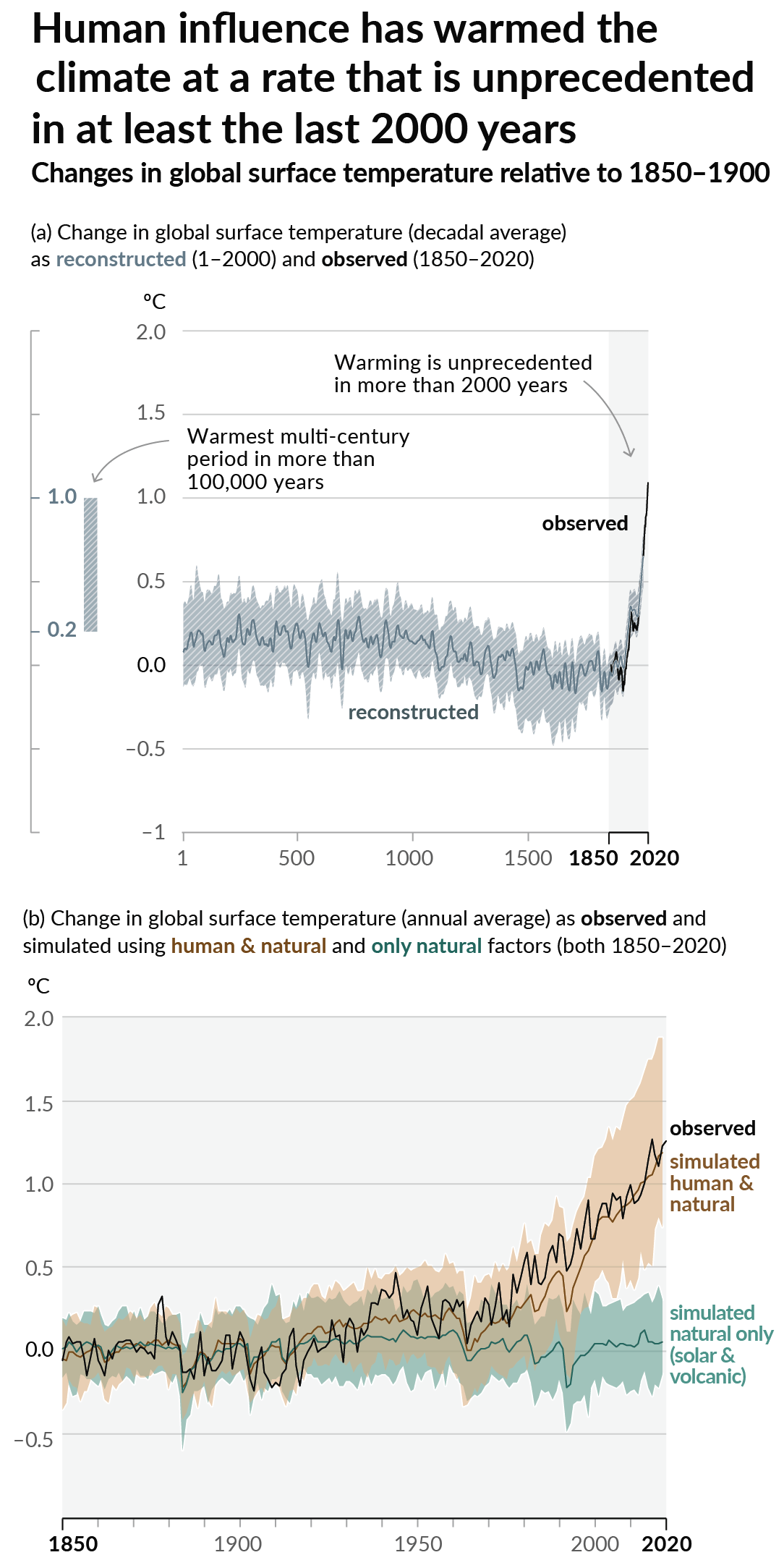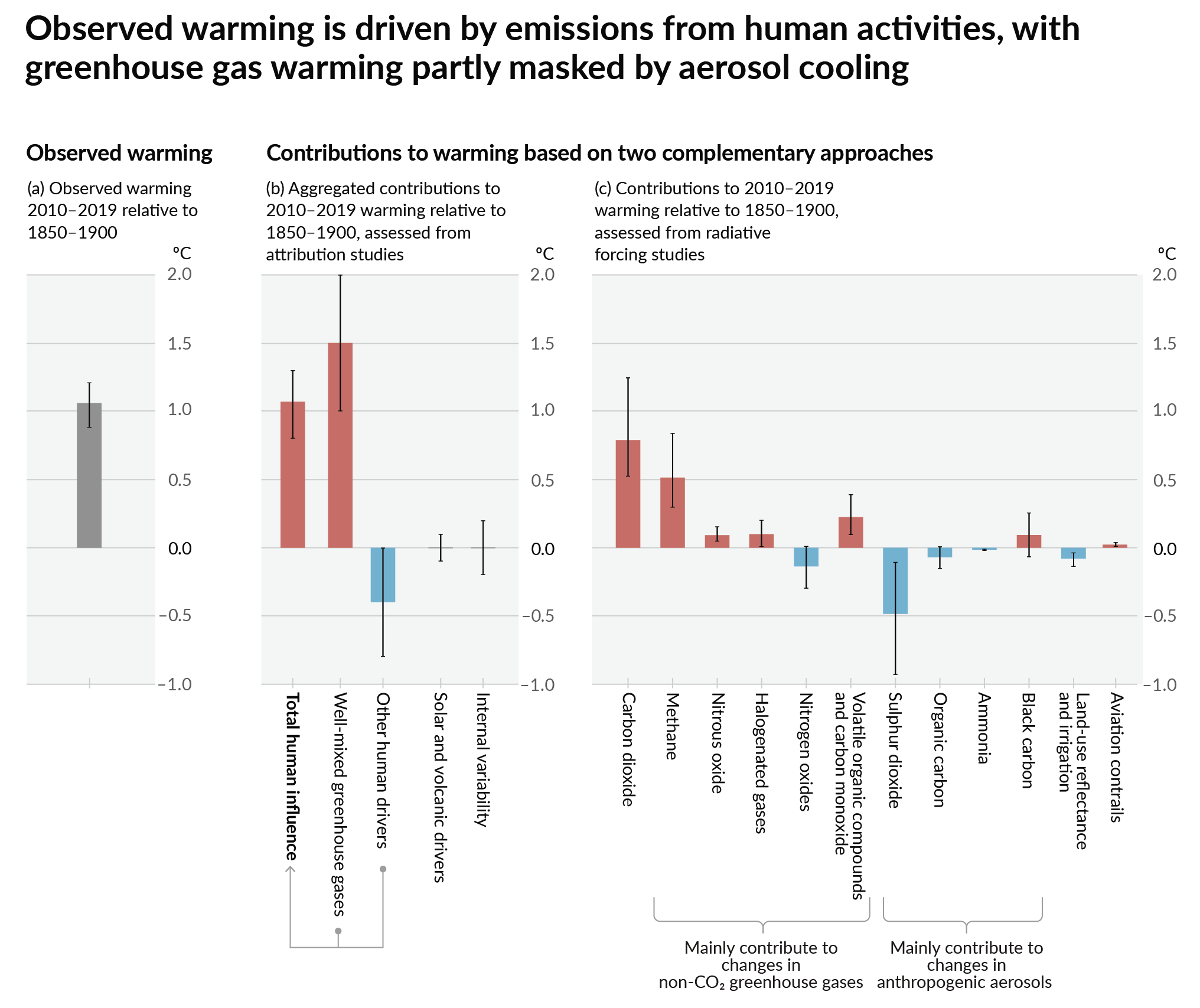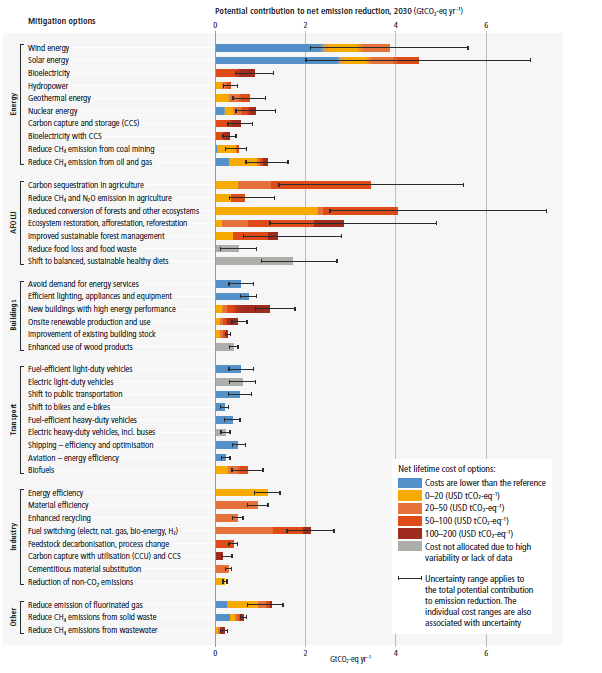61
America Needs To Install A Lot More Heat Pumps
(www.distilled.earth)
Discussion of climate, how it is changing, activism around that, the politics, and the energy systems change we need in order to stabilize things.
As a starting point, the burning of fossil fuels, and to a lesser extent deforestation and release of methane are responsible for the warming in recent decades:

How much each change to the atmosphere has warmed the world:

Recommended actions to cut greenhouse gas emissions in the near future:

Anti-science, inactivism, and unsupported conspiracy theories are not ok here.
The answer is always yes. Heat pumps produce more energy transfer than they consume, giving you higher performance per input.
If you have a natural source of renewable heat (geothermal, solar, etc) then the heat pump only needs to be installed properly to supplement that primary heat source or leverage the heat source (if it’s not capable of being the primary source)
You could argue that it is less beneficial if you get electricity from a coal plant but could heat directly with natural gas or oil. The long term benefit comes from the heat pump’s ability to use any fuel without you spending a dime on new equipment. For example - a 92% AFUE gas furnace or high efficiency oil furnace will never pollute less than the day it’s installed. An electric heat pump may not be ideal when you are fueling it with coal, but when that source gives way to nuclear, solar, or wind your installed heating device will instantly be better (than the gas or oil fueled system) without spending a single cent on your local equipment.